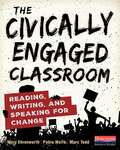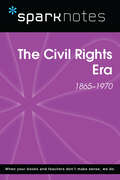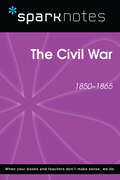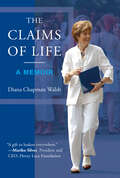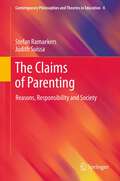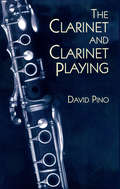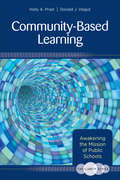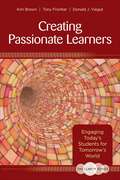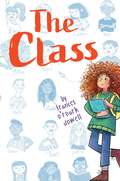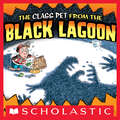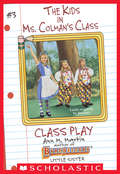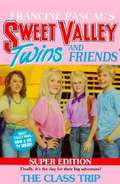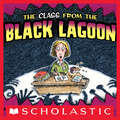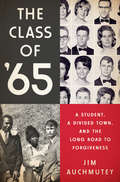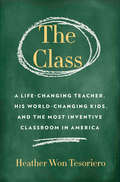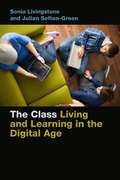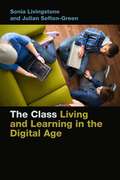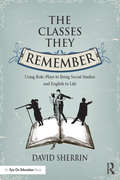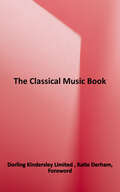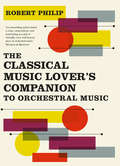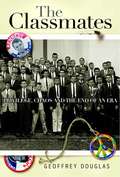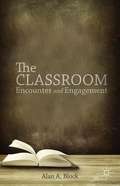- Table View
- List View
The Civically Engaged Classroom
by Mary Ehrenworth Pablo Wolfe Marc ToddAre your students ready to become the engaged and informed citizens our democracy needs right now? Your classroom can be a place for them to experience what it means to live in community with others, to balance their own interests with those of the group, to challenge themselves to overcome differences, and to ask the questions that help them understand the crux of an issue. Powerful reading and writing is fundamentally linked to civic education. The Civically Engaged Classroom is packed with practical guidance designed to support teachers in giving students the skills, knowledge, and tools to be active participants in society. Each chapter describes classroom structures, curricular possibilities, and specific lessons for teaching crucial civic virtues, including: acknowledging identity, bias, and privilege building background knowledge close and critical reading and ethical research skills composing nuanced stances in writing building coalitions and engaging in activism. The work of engaging young people isn't about giving students a voice: they already have their own voices. The work is about teaching them to use those voices with power. - If you are an educator and are interested in joining a community of practice dedicated to preparing the citizens this world needs right now, then the Coalition of Civically Engaged Educators is for you! Visit https: //www.civically-engaged.org to learn more.
The Civil Rights Era (SparkNotes History Notes)
by SparkNotesThe Civil Rights Era (SparkNotes History Note) Making the reading experience fun! SparkNotes History Guides help students strengthen their grasp of history by focusing on individual eras or episodes in U.S. or world history. Breaking history up into digestible lessons, the History Guides make it easier for students to see how events, figures, movements, and trends interrelate. SparkNotes History Guides are perfect for high school and college history classes, for students studying for History AP Test or SAT Subject Tests, and simply as general reference tools.Each note contains a general overview of historical context, a concise summary of events, lists of key people and terms, in-depth summary and analysis with timelines, study questions and suggested essay topics, and a 50-question review quiz.
The Civil War (SparkNotes History Notes)
by SparkNotesThe Civil War (SparkNotes History Note) Making the reading experience fun! SparkNotes History Guides help students strengthen their grasp of history by focusing on individual eras or episodes in U.S. or world history. Breaking history up into digestible lessons, the History Guides make it easier for students to see how events, figures, movements, and trends interrelate. SparkNotes History Guides are perfect for high school and college history classes, for students studying for History AP Test or SAT Subject Tests, and simply as general reference tools.Each note contains a general overview of historical context, a concise summary of events, lists of key people and terms, in-depth summary and analysis with timelines, study questions and suggested essay topics, and a 50-question review quiz.
The Claims of Life: A Memoir
by Diana Chapman WalshThe engaging memoir of a legendary president of Wellesley College known for authentic and open-hearted leadership, who drove innovation with power and love.The Claims of Life traces the emergence of a young woman who set out believing she wasn&’t particularly smart but went on to meet multiple tests of leadership in the American academy—a place where everyone wants to be heard and no one wants a boss. In college, Diana Chapman met Chris Walsh, who became a towering figure in academic science. Their marriage of fifty-seven years brought them to the forefront of revolutions in higher education, gender expectations, health-care delivery, and biomedical research.The Claims of Life offers readers an unusually intimate view of trustworthy leadership that begins and ends in self-knowledge. During a transformative fourteen-year Wellesley presidency, Walsh advanced women&’s authority, compassionate governance, and self-reinvention. After Wellesley, Walsh&’s interests took her to the boards of five national nonprofits galvanizing change. She kept counsel with Nobel laureates, feminist icons, and even the Dalai Lama, seeking solutions to the world&’s climate crisis.With an ear tuned to social issues, The Claims of Life is an inspiring account of a life lived with humor, insight, and meaning that will surely leave a lasting impression on its readers.
The Claims of Parenting
by Stefan Ramaekers Judith SuissaMany sociological, historical and cultural stories can be and have already been told about why it is that parents in post-industrial, western societies face an often overwhelming array of advice on how to bring up their children. At the same time, there have been several philosophical treatments of the legal, moral and political issues surrounding issues of procreation, the rights of children and the duties of parents, as well as some philosophical accounts of the shifts in our underlying conceptualization of childhood and adult-child relationships. While this book partly builds on the insights of this literature, it is significantly different in that it offers a philosophically-informed discussion of the actual practical experience of being a parent, with its deliberations, judgements and dilemmas. In probing the ethical and conceptual questions suggested by the parent-child relationship, this unique volume demonstrates the irreducible philosophical richness of this relationship and thus provides an important counter-balance to the overly empirical and largely psychological focus of a great deal of "parenting" literature. Unlike other analytic work on the parent-child relationship and the educational role of parents, this work draws on first-person accounts of the day-to-day experience of being a parent in order to explore the ethical and epistemological aspects of this experience. In so doing it exposes the limitations of some of the languages within which contemporary "parenting" is conceptualized and discussed, and opens up a space for thinking about childrearing and the parent-child relationship beyond and other than in terms of the languages which dominate the ways in which we generally think about it today.
The Clarinet and Clarinet Playing
by David PinoOne of the most comprehensive available books on the subject features suggestions about technique, tonguing and articulation, musicianship, and musical interpretation. Includes guidelines for teaching, making your own reeds, and preparing for public performance, plus an intriguing look at clarinet history. "A godsend . . . far and away the most valuable guide ever printed for the self-taught player." -- The Clarinet, Journal of the International Clarinet Society. Appendixes. Includes 7 black-and-white illustrations.
The Clarity Series: Awakening the Mission of Public Schools
by Donald J. Viegut Holly T. PrastTo fully prepare K-12 students for life and career, connect with your community! Benefit from the triple win of community-based learning—meaningful curriculum, engaged students, and stronger local partnerships for education. This helpful guide shows readers how to create a thriving program, including: Implementing a high-quality, sustainable initiative that bridges academic disciplines Forging rewarding relationships with local partners, from major employers to small businesses and community groups Recognizing and overcoming common barriers to program effectiveness, while making the best use of resources and time Applying best practices from today’s community-based learning programs, illustrated by case studies and examples
The Clarity Series: Awakening the Mission of Public Schools
by Donald J. Viegut Holly T. PrastTo fully prepare K-12 students for life and career, connect with your community! Benefit from the triple win of community-based learning—meaningful curriculum, engaged students, and stronger local partnerships for education. This helpful guide shows readers how to create a thriving program, including: Implementing a high-quality, sustainable initiative that bridges academic disciplines Forging rewarding relationships with local partners, from major employers to small businesses and community groups Recognizing and overcoming common barriers to program effectiveness, while making the best use of resources and time Applying best practices from today’s community-based learning programs, illustrated by case studies and examples
The Clarity Series: Engaging Today′s Students for Tomorrow′s World
by Tony Frontier Kim M. Brown Donald J. ViegutIncrease student engagement and create passionate learners. The path that leads a student to drop out of school is typically long, with engagement fading each year until the student stops attending. Clearly, increasing student engagement is the key to halting this sequence. But lack of consensus on the definition of "engagement" makes this difficult. What schools need is a common engagement literacy – a simple yet nuanced understanding of how to maximize engagement. This book offers the first comprehensive system for defining engagement and optimizing it in any student cohort. Inside, you’ll learn: How to improve teacher feedback methods for maximum engagement The power of mindset (for both educators and students). Key vocabulary terms for furthering the engagement process. With this book, you can block the path to dropping out and create a community of passionate learners.
The Clarity Series: Engaging Today′s Students for Tomorrow′s World
by Tony Frontier Kim M. Brown Donald J. ViegutIncrease student engagement and create passionate learners. The path that leads a student to drop out of school is typically long, with engagement fading each year until the student stops attending. Clearly, increasing student engagement is the key to halting this sequence. But lack of consensus on the definition of "engagement" makes this difficult. What schools need is a common engagement literacy – a simple yet nuanced understanding of how to maximize engagement. This book offers the first comprehensive system for defining engagement and optimizing it in any student cohort. Inside, you’ll learn: How to improve teacher feedback methods for maximum engagement The power of mindset (for both educators and students). Key vocabulary terms for furthering the engagement process. With this book, you can block the path to dropping out and create a community of passionate learners.
The Class
by Frances DowellTwenty Kids. Twenty points of view. One rambunctious, brilliantly conceived novel that corrals the seeming chaos (c’mon, TWENTY points of view!) into one effervescent story. <P><P>Sixth grade is a MOST confusing time. Best friends aren’t friends anymore. Worst enemies suddenly want to be partners in crime. And classmates you thought you knew have all sorts of surprising stuff going on. <P><P>The kids in Mrs. Herrera’s class are dealing with all these things and more—specifically, three more: <P><P>1. There’s a new girl who just seems to be spying on them all and scribbling things in a notebook. Maybe she IS a spy? <P><P>2. Someone is stealing all of Mrs. Herrera’s most treasured items. <P><P> 3. Their old classmate, Sam, keeps showing up and no one knows why…until they do. <P><P>Which leads to a fourth problem. But we can’t tell you about that yet. The twenty kids in Mrs. Herrera’s classroom can, though, and they do. Every. Single. One. Of. Them.
The Class Pet from the Black Lagoon (Black Lagoon Adventures)
by Mike ThalerIt's another scary day at the Black Lagoon. . . .Mrs. Green tells her students that they're going to have a class pet! Hubie's imagination goes wild. Will the new class pet have fangs, horns, or headlights? Will it be vicious? Who knows what kind of monster Mrs. Green will bring in?Hubie's worst fears are nearly realized, when Mrs. Green brings in a big cage. What could be inside?
The Class Play (The Kids in Ms. Colman's Class #3)
by Ann M. MartinFrom the bestselling author of the generation-defining series The Baby-sitters Club comes a series for a new generation!School is always fun in Ms. Colman's Class!Ms. Colman's class is putting on a play. everyone is excited about Alice in Wonderland. Especially Leslie Morris. Leslie loves to act. She would be the perfect Alice. But then Karen is chosen for the part of Alice. Karen is a big show-off. Leslie hates the class play now. Maybe she can ruin it...
The Class Trip (Sweet Valley Twins Super Editions #1)
by Jamie Suzanne Francine PascalBest friends? The day of the big Sweet Valley Middle School sixth-grade trip to a fabulous amusement park has finally arrived! Both twins, Elizabeth and Jessica Wakefield, have been waiting for this day for ages. But they have had a fight and are beginning the trip arguing. When Elizabeth decides to make up, Jessica has disappeared. Will they still be "best friends"?
The Class from the Black Lagoon (Black Lagoon Adventures Ser. #No. 1)
by Mike Thalert's another scary day at the Black Lagoon . . . for the new teacher, Mrs. Green.There's a new class coming for the first day of school and Mrs. Green is worried. Is it true that the class is really weird and that they put their last three teachers into early retirement? Will the students really turn into horrible ghouls as soon as they get to school? Will Mrs. Green really need her ultimate survival kit to teach the class or tame the class?
The Class of '65: A Student, a Divided Town, and the Long Road to Forgiveness
by Jim AuchmuteyIn the midst of racial strife, one young man showed courage and empathy. It took forty years for the others to join him. . . Being a student at Americus High School was the worst experience of Greg Wittkamper’s life. Greg came from a nearby Christian commune, Koinonia, whose members devoutly and publicly supported racial equality. When he refused to insult and attack his school’s first black students in 1964, Greg was mistreated as badly as they were: harassed and bullied and beaten. In the summer after his senior year, as racial strife in Americus--and the nation--reached its peak, Greg left Georgia. Forty-one years later, a dozen former classmates wrote letters to Greg, asking his forgiveness and inviting him to return for a class reunion. Their words opened a vein of painful memory and unresolved emotion, and set him on a journey that would prove healing and saddening. The Class of ’65 is more than a heartbreaking story from the segregated South. It is also about four of Greg’s classmates--David Morgan, Joseph Logan, Deanie Dudley, and Celia Harvey--who came to reconsider the attitudes they grew up with. How did they change? Why, half a lifetime later, did reaching out to the most despised boy in school matter to them? This noble book reminds us that while ordinary people may acquiesce to oppression, we all have the capacity to alter our outlook and redeem ourselves.
The Class: A Life-Changing Teacher, His World-Changing Kids, and the Most Inventive Classroom in America
by Heather Won TesorieroAn unforgettable year in the life of a visionary high school science teacher and his award-winning students, as they try to get into college, land a date for the prom . . . and possibly change the world Andy Bramante left his successful career as a corporate scientist to teach public high school—and now helms one of the most remarkable classrooms in America. Bramante’s unconventional class at Connecticut’s prestigious yet diverse Greenwich High School has no curriculum, tests, textbooks, or lectures, and is equal parts elite research lab, student counseling office, and teenage hangout spot. United by a passion to learn, Mr. B.’s band of whiz kids set out every year to conquer the brutally competitive science fair circuit. They have won the top prize at the Google Science Fair, made discoveries that eluded scientists three times their age, and been invited to the Nobel Prize ceremony in Stockholm. A former Emmy-winning producer for CBS News, Heather Won Tesoriero embeds in this dynamic class to bring Andy and his gifted, all-too-human kids to life—including William, a prodigy so driven that he’s trying to invent diagnostics for artery blockage and Alzheimer’s (but can’t quite figure out how to order a bagel); Ethan, who essentially outgrows high school in his junior year and founds his own company to commercialize a discovery he made in the class; Sophia, a Lyme disease patient whose ambitious work is dedicated to curing her own debilitating ailment; Romano, a football player who hangs up his helmet to pursue his secret science expertise and develop a “smart” liquid bandage; and Olivia, whose invention of a fast test for Ebola brought her science fair fame and an appearance on The Late Show with Stephen Colbert. We experience the thrill of discovery, the heartbreak of failed endeavors, and perhaps the ultimate high: a yes from Harvard. Moving, funny, and utterly engrossing, The Class is a superb account of hard work and high spirits, a stirring tribute to how essential science is in our schools and our lives, and a heartfelt testament to the power of a great teacher to help kids realize their unlimited potential.Advance praise for The Class“A riveting look at a year in the life of an inspiring teacher and how he is helping kids create amazing and award-winning science projects. With the turn of every page, we see the joys of discovery and the immense satisfaction this brings to Andy Bramante, who made a life choice that transforms his students’ lives every day.”—Walter Isaacson, author of the New York Times bestseller Steve Jobs
The Class: Living and Learning in the Digital Age (Connected Youth and Digital Futures #1)
by Julian Sefton-Green Sonia LivingstoneAn intimate look at how children network, identify, learn and grow in a connected world.Read Online at connectedyouth.nyupress.orgDo today’s youth have more opportunities than their parents? As they build their own social and digital networks, does that offer new routes to learning and friendship? How do they navigate the meaning of education in a digitally connected but fiercely competitive, highly individualized world?Based upon fieldwork at an ordinary London school, The Class examines young people's experiences of growing up and learning in a digital world. In this original and engaging study, Livingstone and Sefton-Green explore youth values, teenagers’ perspectives on their futures, and their tactics for facing the opportunities and challenges that lie ahead. The authors follow the students as they move across their different social worlds—in school, at home, and with their friends, engaging in a range of activities from video games to drama clubs and music lessons. By portraying the texture of the students’ everyday lives, The Class seeks to understand how the structures of social class and cultural capital shape the development of personal interests, relationships and autonomy. Providing insights into how young people’s social, digital, and learning networks enable or disempower them, Livingstone and Sefton-Green reveal that the experience of disconnections and blocked pathways is often more common than that of connections and new opportunities.
The Class: Living and Learning in the Digital Age (Connected Youth and Digital Futures #1)
by Sonia Livingstone Julian Sefton-GreenAn intimate look at how children network, identify, learn and grow in a connected world.Read Online at connectedyouth.nyupress.orgDo today’s youth have more opportunities than their parents? As they build their own social and digital networks, does that offer new routes to learning and friendship? How do they navigate the meaning of education in a digitally connected but fiercely competitive, highly individualized world?Based upon fieldwork at an ordinary London school, The Class examines young people's experiences of growing up and learning in a digital world. In this original and engaging study, Livingstone and Sefton-Green explore youth values, teenagers’ perspectives on their futures, and their tactics for facing the opportunities and challenges that lie ahead. The authors follow the students as they move across their different social worlds—in school, at home, and with their friends, engaging in a range of activities from video games to drama clubs and music lessons. By portraying the texture of the students’ everyday lives, The Class seeks to understand how the structures of social class and cultural capital shape the development of personal interests, relationships and autonomy. Providing insights into how young people’s social, digital, and learning networks enable or disempower them, Livingstone and Sefton-Green reveal that the experience of disconnections and blocked pathways is often more common than that of connections and new opportunities.
The Classes They Remember: Using Role-plays And Mock Trials To Bring Social Studies And English To Life
by David SherrinLearn how to use role-plays to bring history and literature to life! When students take on the roles of historical or literary figures, they develop a greater understanding of characters’ identities and motivations, and are able to more deeply explore and reflect upon key issues and themes. In this new book from award-winning teacher David Sherrin, you’ll find out how this lively instructional format will make teaching a more immersive, interactive, and memorable experience for your middle school and high school students. The book includes: <P><P> A clear how-to guide to get the most out of role-playing in your class; Ready-made units and lessons to get you started right away, complete with sample scripts, scaffolding worksheets, and assessment rubrics; Templates and step-by-step instructions to help you design your own role-plays. <P><P> The pre-made units, which Sherrin spent years refining in his classroom, cover historical topics such as the rise of Nazi Germany and the Spanish conquest of the Aztecs. You’ll also find fun and interactive role-plays based on literary works like The Pearl and Fences. These lessons will help students at all ability levels to become better communicators, problem-solvers, and creative thinkers.
The Classical Music Book: Big Ideas Simply Explained (DK Big Ideas Ser.)
by Dorling Kindersley LimitedLearn about the world’s greatest classical compositions and musical traditions in The Classical Music Book. Part of the fascinating Big Ideas series, this book tackles tricky topics and themes in a simple and easy-to-follow format. Learn about Classic Music in this overview guide to the subject, great for novices looking to find out more and experts wishing to refresh their knowledge alike! The Classical Music Book brings a fresh and vibrant take on the topic through eye-catching graphics and diagrams to immerse yourself in. This captivating book will broaden your understanding of Classical Music, with: - More than 90 pieces of world-famous music - Packed with facts, charts, timelines and graphs to help explain core concepts - A visual approach to big subjects with striking illustrations and graphics throughout - Easy to follow text makes topics accessible for people at any level of understanding The Classical Music Book is a captivating introduction to music theory, crucial composers and the impact of seminal pieces, aimed at adults with an interest in the subject and students wanting to gain more of an overview. Here you’ll discover more than 90 works by famous composers from the early period to the modern day, through exciting text and bold graphics. Your Classical Music Questions, Simply Explained From Mozart to Mendelssohn, this fresh new guide goes beyond your typical music books, offering a comprehensive overview to classical music history and biography. If you thought it was difficult to learn about music theory, The Classical Music Book presents key information in an easy to follow layout. Explore the main ideas underpinning the world’s greatest compositions and musical traditions, and define their importance to the musical canon and into their wider social, cultural, and historical context. The Big Ideas Series With millions of copies sold worldwide, The Classical Music Book is part of the award-winning Big Ideas series from DK. The series uses striking graphics along with engaging writing, making big topics easy to understand.
The Classical Music Lover's Companion to Orchestral Music
by Robert PhilipAn invaluable guide for lovers of classical music designed to enhance their enjoyment of the core orchestral repertoire from 1700 to 1950 Robert Philip, scholar, broadcaster, and musician, has compiled an essential handbook for lovers of classical music, designed to enhance their listening experience to the full. Covering four hundred works by sixty-eight composers from Corelli to Shostakovich, this engaging companion explores and unpacks the most frequently performed works, including symphonies, concertos, overtures, suites, and ballet scores. It offers intriguing details about each piece while avoiding technical terminology that might frustrate the non-specialist reader. Philip identifies key features in each work, as well as subtleties and surprises that await the attentive listener, and he includes enough background and biographical information to illuminate the composer’s intentions. Organized alphabetically from Bach to Webern, this compendium will be indispensable for classical music enthusiasts, whether in the concert hall or enjoying recordings at home.
The Classmates: Privilege, Chaos, and the End of an Era
by Geoffrey DouglasFifty years ago, in the fall of 1957, two thirteen-year-old boys were enrolled at an elite, boys-only New England boarding school. One of them, descended from wealth and eminence, would go on to Yale, then to a career as a navy officer and Vietnam war hero, and finally to the U.S. Senate, from where he would fall just short of the White House. The other was a scholarship student, a misfit giant of a boy from a Pennsylvania farm town who would suffer shameful debasements at the hands of his classmates, then go on to a solitary and largely anonymous life as a salesman of encyclopedias and trailer parts--before dying, alone, twelve months after his classmate's narrow loss on Election Day 2004. It is around these two figures, John Kerry and a boy known here only as Arthur, the bookends of a class of one hundred boys, that Geoffrey Douglas--himself a member of that boarding-school class--builds this remarkable memoir. His portrait of their lives and the lives of five others in that class--two more Vietnam veterans with vastly divergent stories, a federal judge, a gay New York artist who struggled for years to find his place in the world, and Douglas himself--offers a memorable look back to a generation caught between the expectations of their fathers and the sometimes terrifying pulls of a society driven by war, defiance, and self-doubt. The class of 1962 was not so different from any other, with its share of swaggerers and shining stars, outcasts and scholarship students. Its distinction was in its timing: at the precise threshold of the cultural and political upheavals of the late 1960s. The world these boys had been trained to enter and to lead, a world very similar to their fathers', would be exploded and recast almost at the moment of their entrance--forcing choices whose consequences were sometimes lifelong. Douglas's chronicle of those times and choices is both a capsule history of an era and a literary tour de force.
The Classroom
by Alan A. BlockWhat goes on in a classroom? can mean "Are teachers imparting knowledge that will raise test scores?" or it can mean much more. In this series of essays, Block addresses the nature of the classroom as a place for encounter and engagements: with curriculum materials and books, between teachers and students, and with the self.
